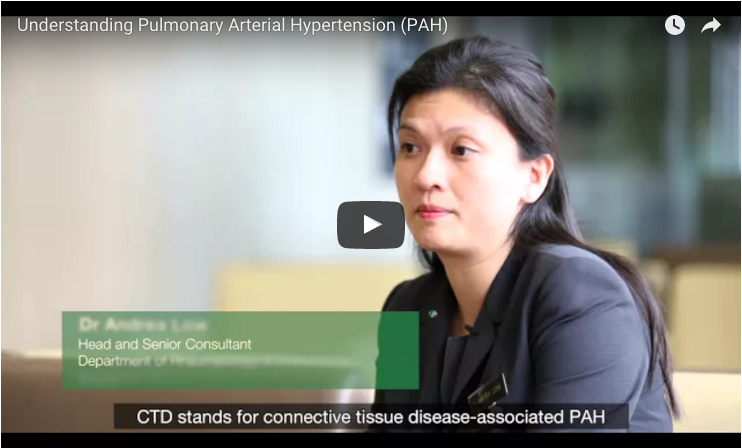Understanding Pulmonary Arterial Hypertension (PAH)

Pulmonary arterial hypertension (PAH) is a rare blood vessel disorder of the lung in which the pressure in the pulmonary artery (the blood vessel that leads from the heart to the lungs) rises above normal levels and may become life threatening.
In the advanced stage of the disease, the blood vessels in the lungs are narrowed, thickened and stiff, causing it difficult for the heart to pump blood through, causing the heart muscle to weaken over time. Clots can form and block part of the vessel’s lumen as well.
PAH is commonly associated with connective tissue diseases (CTDs) including systemic sclerosis and systemic lupus erythematosus (SLE).
If you are diagnosed with pulmonary hypertension, you can still lead a fulfilling and meaningful life. Take appropriate measure to take care of yourself and avoid factors that can worsen your condition.







